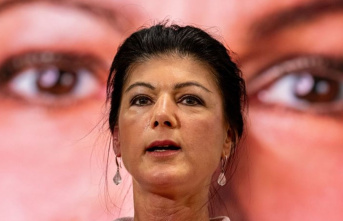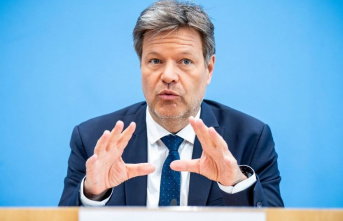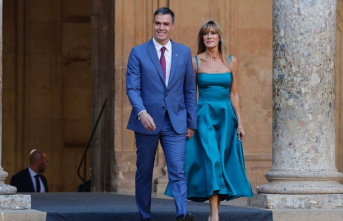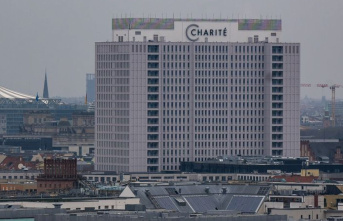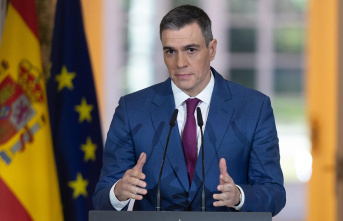In the coalition dispute over the continued use of nuclear power plants, the pressure of time is increasing, but there is no sign of a solution. The Greens also formally decided the position of their party leadership at a party conference over the weekend. FDP Finance Minister Christian Lindner, on the other hand, warned of red lines.
The SPD continued to hold back with its own positioning. It was expected that Chancellor Olaf Scholz (SPD), Green Economics Minister Robert Habeck and Lindner would get together as soon as possible, possibly on Sunday, and look for a way out.
SPD parliamentary secretary Katja Mast called for "healthy political pragmatism" in the coming days and weeks. "My impression is that people are not interested in who has which political stakes in the nuclear debate," she told the German Press Agency. It is much more important how energy security can be established and how energy prices can be lowered. "I'm confident that the traffic light will solve these questions. Timely and with the necessary political seriousness."
Nouripour: "Time is of the essence"
Green leader Omid Nouripour admitted: "Time is of the essence." At RTL/ntv he was cautiously optimistic. "We will talk to each other and, of course, as always, we will find a solution." But what that might look like was initially unclear on Sunday.
On Friday evening in Bonn, the Green Party Congress decided with a clear majority on the previous course of the party leadership: The two southern German nuclear power plants Isar 2 and Neckarwestheim 2 are to be kept in reserve until April 15 and continue to be used to generate electricity if necessary; the third remaining Emsland nuclear power plant, on the other hand, is to be finally shut down on January 1, 2023. In view of the sharp rise in energy prices, the FDP, on the other hand, is demanding that all three power plants continue to operate until 2024 and, if necessary, that nuclear power plants that have already been shut down be reactivated.
Nouripour said: "We actually had a solution. We agreed it with each other in the coalition." The so-called "double boom" decision of the federal government states that in an emergency the two southern German nuclear power plants could continue to operate to a limited extent; that means that the Emsland nuclear power plant will be shut down. "That's the decision that we agreed on in the coalition." However, the FDP argues that its boss Lindner has made it clear publicly that he has a different position.
Nouripour added that there is no energy policy requirement for the Lower Saxony pile to run longer. "So now I don't see why we should change anything."
FDP leader Lindner urged the Greens to give in on Twitter on Saturday. "When it comes to averting damage to our country, reducing high energy prices and preventing blackouts, then for me there are no red lines. This is not about partisan politics. I've jumped over my fiscal shadow billions of times," wrote the finance minister.
Chancellor Olaf Scholz promised a quick agreement on Friday. "We will solve the very specific practical question very quickly, promptly by next week," said the SPD politician. SPD leader Lars Klingbeil had previously made it clear that he expected the topic from Scholz, Habeck and Lindner to be cleared up in the course of the week - that would mean by this Sunday.
A significantly longer operation of nuclear power plants would be associated with the procurement of new fuel elements, which the Greens rejected at the party conference. "Bündnis 90/Die Grünen will not agree to any legal regulation in the Bundestag that would procure new fuel elements or the new enriched uranium required for them," says the approved motion. The party leadership had stressed shortly before the party conference that the result of the vote was binding for the upcoming talks with the SPD and FDP.
CDU leader Friedrich Merz said at a CDU event in Villingen-Schwenningen that the whole world was stunned by the debate being held in this country. All three remaining nuclear power plants would have to remain online. With regard to the decisions of the Green Party Congress, Merz said that one was on the way "to be taken hostage by a Green Party, which, for purely ideological reasons, is taking this sensible path, which the overwhelming majority of people in Germany consider sensible. blocked - just so that the founding myth of this party survives this party congress undamaged".


